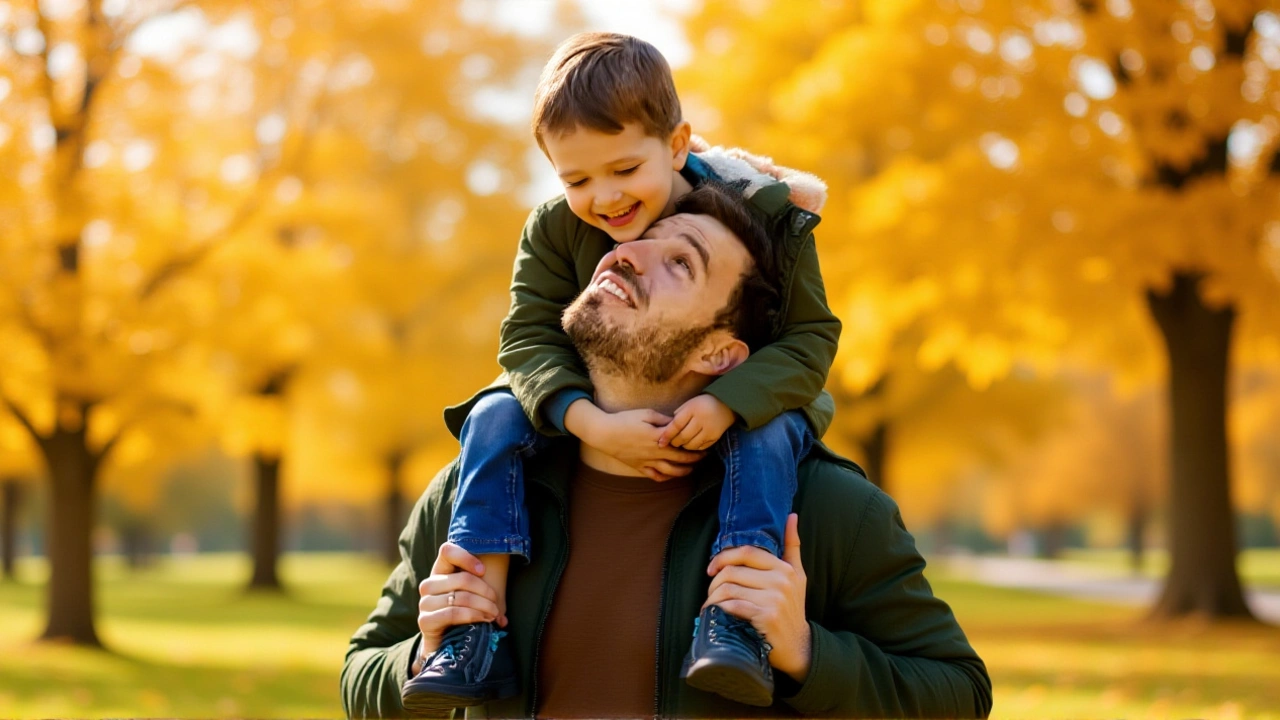On Wednesday, November 19, 2025, the world will observe International Men's Day under the theme 'Celebrating Men and Boys' — a call to recognize the quiet heroes among us: fathers who work double shifts, teachers who stay late, volunteers who show up when no one’s watching, and sons learning to be vulnerable in a world that rarely rewards it. The announcement, made public by the International Men's Day website and echoed by The Economic Times, Times of India, and NDTV, arrives at a pivotal moment — as global suicide rates among men continue to climb and mental health services remain underfunded. This isn’t just another awareness day. It’s a reckoning.
The Pillars Behind the Movement
At its core, International Men's Day isn’t about competition. It’s about balance. The movement rests on six pillars, each quietly reshaping how society sees masculinity. First: celebrating everyday male role models — not just athletes or celebrities, but the mechanic who mentors teens, the single dad who cooks dinner after a 14-hour shift. Second: honoring men’s contributions to family, community, and the environment — often invisible because they’re unpaid, uncelebrated, and rarely make headlines. Third: addressing men’s health across physical, emotional, and spiritual dimensions. Fourth: confronting systemic bias — from custody courts that favor mothers to workplace safety regulations that ignore male-dominated industries. Fifth: improving gender relations, not by pitting men against women, but by showing how both benefit from equality. And sixth: building a safer world where every person, regardless of gender, can thrive.
Warwick Marsh and the Global Engine
The heartbeat of this movement? Warwick Marsh, founder of the Australian charity Dads4Kids. A Christian-based harm prevention organization, Dads4Kids has spent over a decade running fatherhood programs across rural Queensland, helping men reconnect with their children after separation, divorce, or incarceration. Marsh doesn’t just run events — he runs a network. As the sponsor and coordinator of the International Men's Day website, he’s the unseen architect behind the global webcast, the policy briefings, the school outreach programs. His approach? Practical. Compassionate. Unflinching. "We don’t need more speeches," Marsh told Christian Daily last year. "We need more men showing up — in schools, in hospitals, in prisons — and saying, ‘I see you. You’re not alone.’"
The Nine-Hour Webcast: A Global Conversation
The centerpiece of International Men's Day 2025 will be a nine-hour live webcast, streaming from Sydney between 3:00 PM and midnight Australian Eastern Daylight Time (AEDT) on November 19. Organizers promise raw, unfiltered stories — a veteran in Ohio speaking about PTSD, a teacher in Nairobi sharing how he started a boys’ mentorship circle, a father in Belfast who lost his son to suicide and now runs a crisis hotline. The lineup includes psychologists, former inmates, coaches, and even a retired rugby player turned grief counselor. "This isn’t performance," says one producer. "It’s testimony. These are men who’ve been told to shut up. Today, they’re finally being heard."

Parliamentary Debate and Local Action
The following day, November 20, 2025, a Parliamentary Debate on men’s mental health policy is scheduled in the UK — a direct result of pressure from advocacy groups and the growing public demand for change. Meanwhile, in Australia, the "Zero Male Suicide" campaign continues to expand, with local councils funding peer-support networks in mining towns and remote Indigenous communities. In the UK, schools now integrate emotional literacy into Year 7 curricula, a shift from the old "man up" mentality. And in Gin Gin, Queensland, a community gathering at 5:30 PM on November 20 will feature local men sharing their stories over barbecue and coffee — no microphones, no press, just honesty.
Why November 19? The 48-Hour Legacy
Choosing November 19 wasn’t random. It’s a deliberate bookend to International Children's Day on November 20 — creating a 48-hour window to honor the bond between fathers and children. "It’s not about one day for men and one day for women," explains Dr. Lena Torres, a gender studies professor at the University of Cape Town. "It’s about recognizing that children need whole men — men who can cry, who can be soft, who can be strong without being loud. That’s the legacy we’re building."

A Legacy Rooted in History
The modern movement traces back to 1999, when Trinidadian historian Dr. Jerome Teelucksingh revived the idea of a men’s day — originally proposed in the 1960s — and anchored it to November 19. The first global gathering happened in 2009, when 5,000 men gathered at the Orlando Communal Hall in Soweto, South Africa, under the keynote address of then-Deputy President Kgalema Motlanthe. Organized by the National Association of People Living With HIV and AIDS (NAPWA), the event highlighted how stigma and silence were killing men faster than disease. Since then, the movement has grown quietly, steadily — without corporate sponsors, without viral hashtags, but with real, lasting impact.
What’s Next?
This year, the International Men's Day website is pushing for national recognition in at least 15 new countries. In the U.S., a bipartisan bill is being drafted to designate November as Men’s Equality Month. Meanwhile, Movember — already a $1 billion global health initiative — is partnering with the movement to funnel funding into male mental health clinics in low-income areas. The goal? Not just awareness. Action. Prevention. Survival.
Frequently Asked Questions
How does International Men's Day differ from International Women's Day?
International Men's Day doesn’t compete with International Women's Day — it complements it. While Women's Day focuses on historical and systemic gender inequality faced by women, Men's Day addresses issues often overlooked: male suicide rates, custody bias, workplace fatalities, and emotional isolation. Both aim for equality, but from different angles. As the International Men's Day website states, it’s about "shared goals," not zero-sum battles.
Why is the theme 'Celebrating Men and Boys' this year?
The 2025 theme shifts focus from problem identification to positive reinforcement. After years highlighting male suicide and mental health crises, organizers want to spotlight resilience — the father who wakes up early to drive his daughter to soccer practice, the teacher who stays after school to help a struggling boy, the retired veteran who volunteers at a youth center. Celebration isn’t denial — it’s motivation. Studies show that recognition reduces isolation and increases help-seeking behavior.
What role does Australia play in International Men's Day?
Australia is the movement’s operational hub. Warwick Marsh and Dads4Kids coordinate the global webcast, and Australian cities lead in grassroots outreach. The "Zero Male Suicide" campaign, launched in Queensland, has reduced youth male suicides by 22% in participating regions since 2020. The country also hosts the largest annual gathering outside the UK, with over 12,000 attendees in 2024.
Is International Men's Day only for men?
Absolutely not. Women — mothers, sisters, teachers, employers — are critical allies. The day’s success depends on them: creating safe spaces for men to speak, challenging toxic norms in workplaces and homes, and supporting policies that fund mental health services. Many events are family-oriented, with workshops for parents and children together. The goal isn’t exclusion — it’s inclusion of men in the broader conversation about human dignity.
What’s the connection between Movember and International Men's Day?
Movember (November + moustache) raises funds for prostate cancer, testicular cancer, and mental health programs — a financial engine for the men’s health sector. International Men's Day provides the narrative framework: why these issues matter beyond fundraising. While Movember focuses on medical causes, Men's Day tackles social and emotional ones — loneliness, stigma, identity. Together, they form a powerful one-two punch: awareness and action, science and story.
Why is this day gaining traction now?
Three factors: rising male suicide rates (men die by suicide 3.5x more than women in the U.S. and UK), the collapse of traditional male social structures (fewer unions, less community), and a new generation of men rejecting silence. Social media has amplified personal stories — and young men are leading the charge. TikTok videos with hashtags like #DontSufferInSilence have over 2 billion views. This isn’t a trend. It’s a cultural shift.
